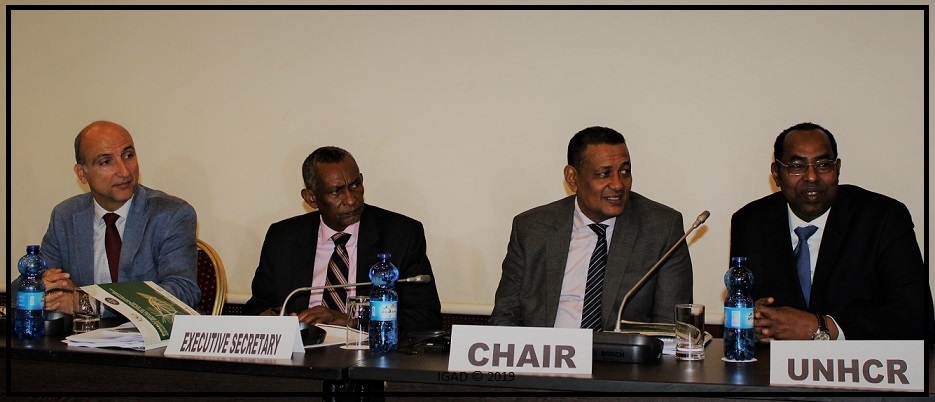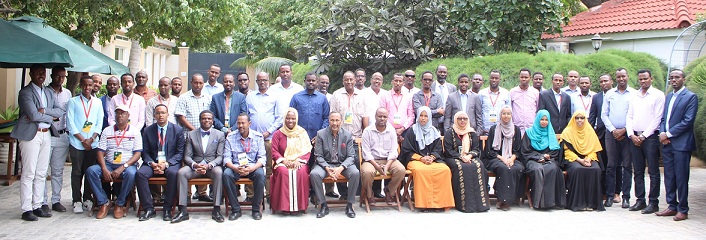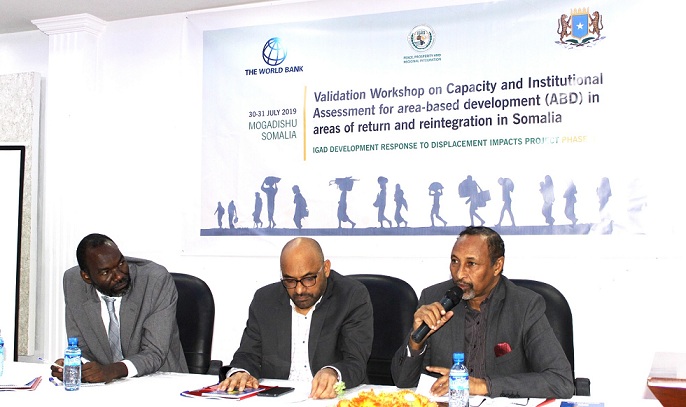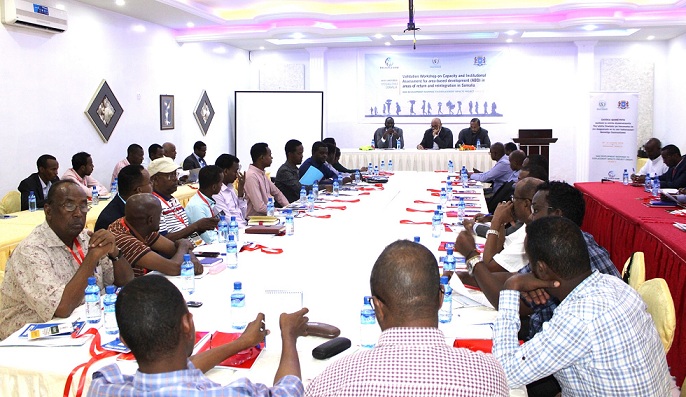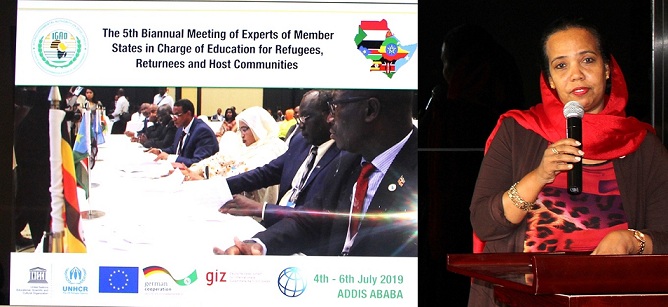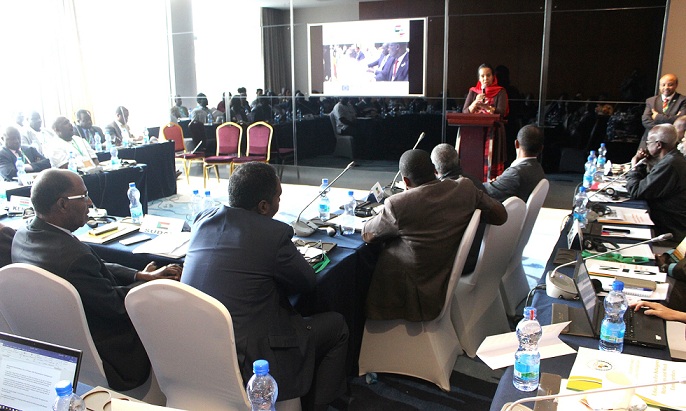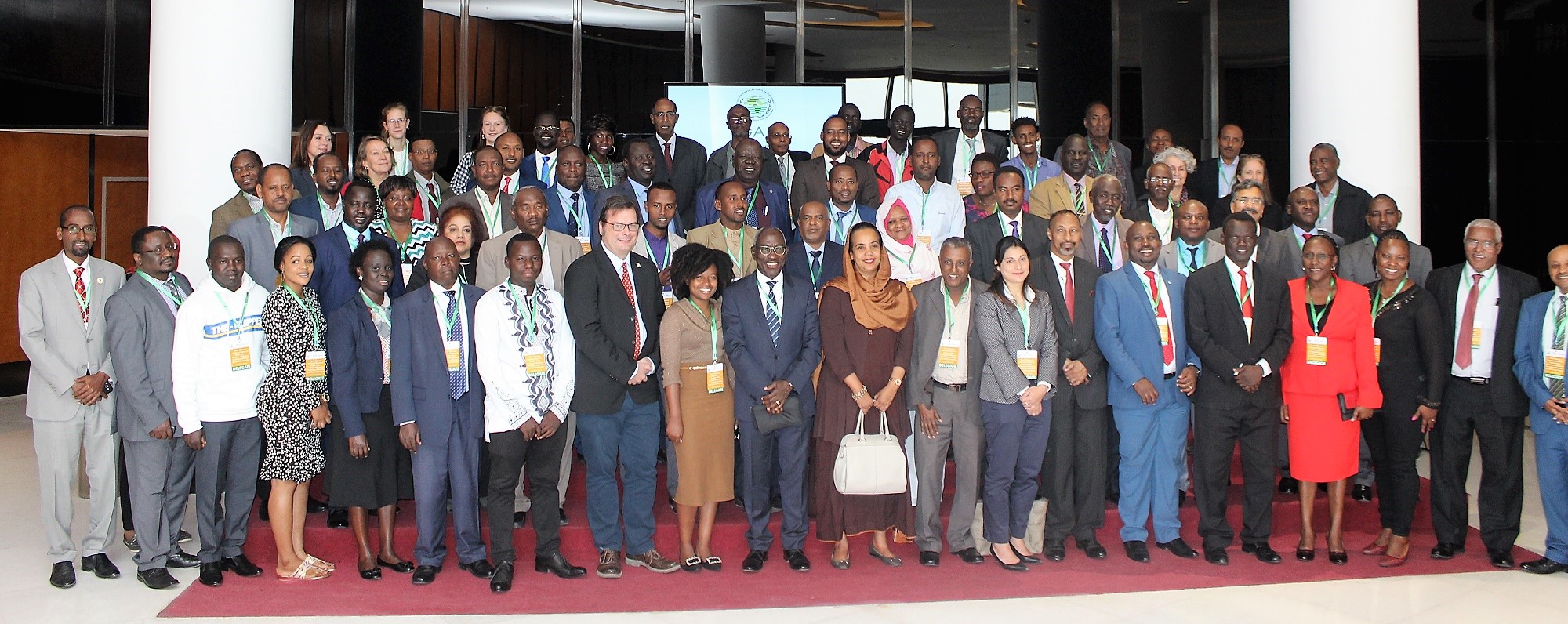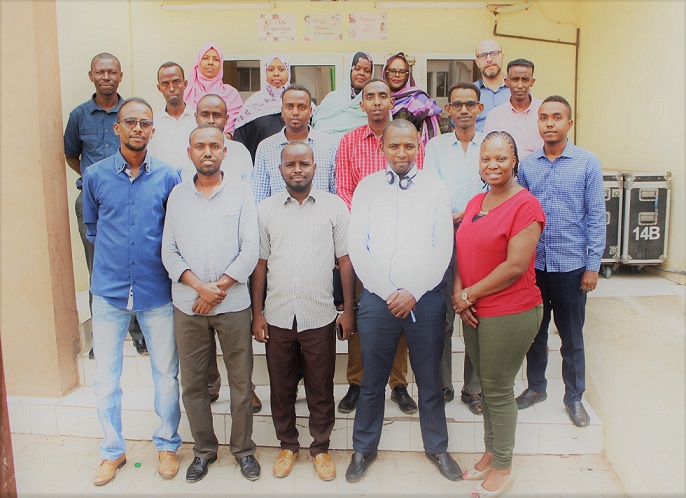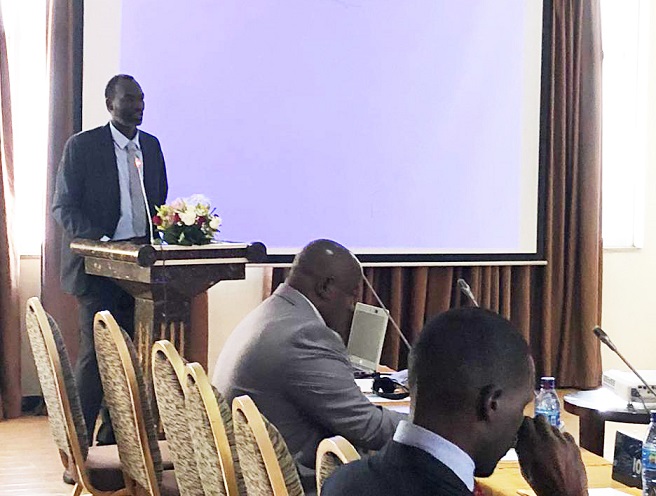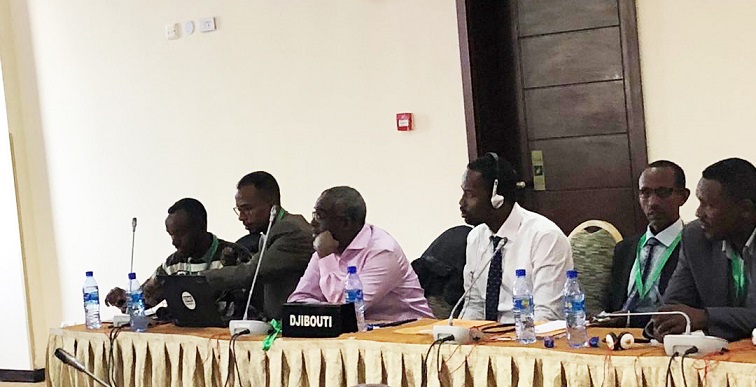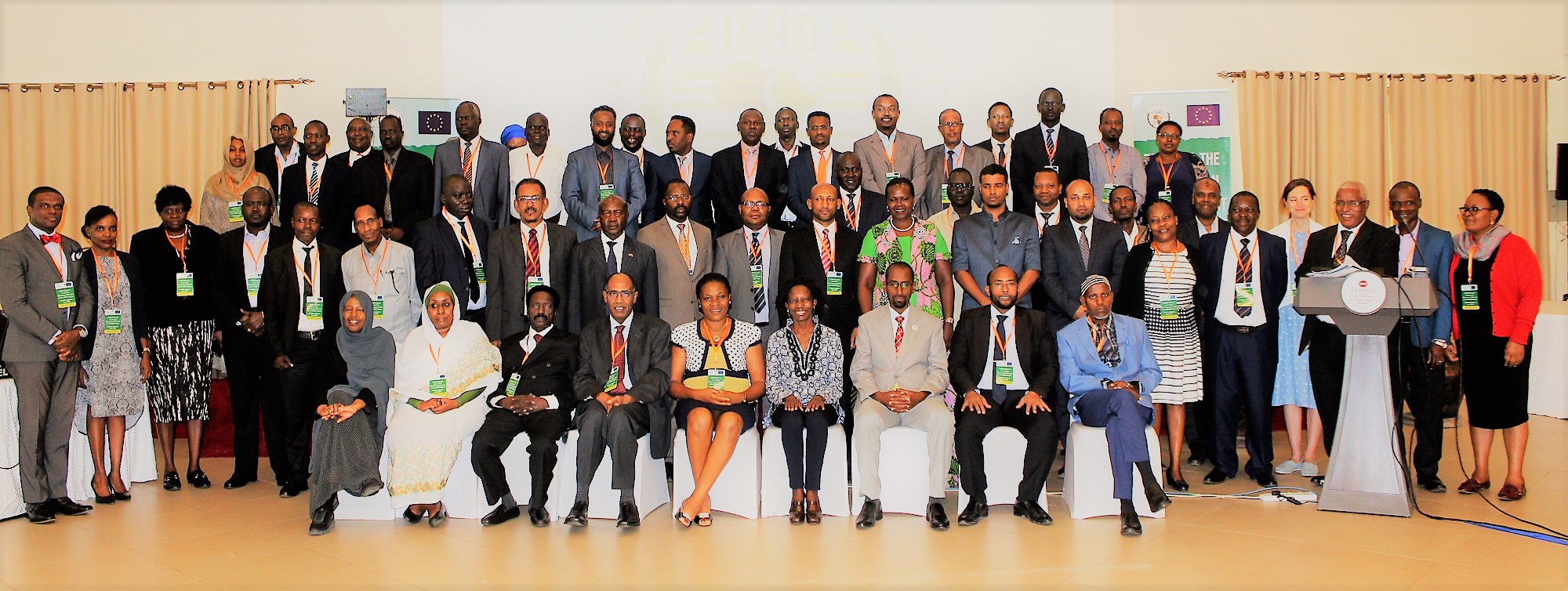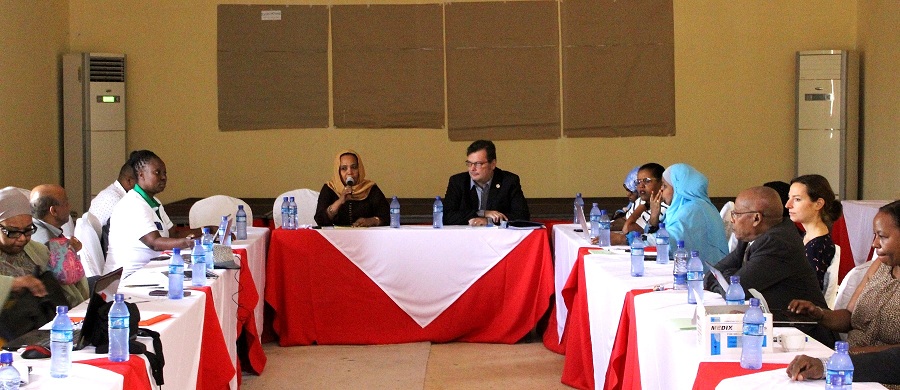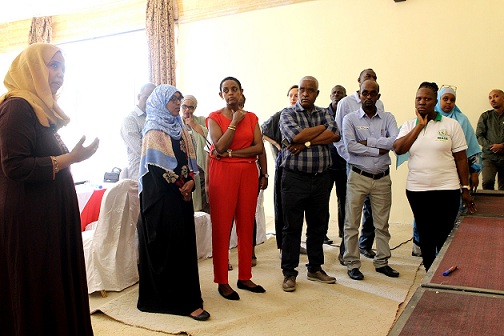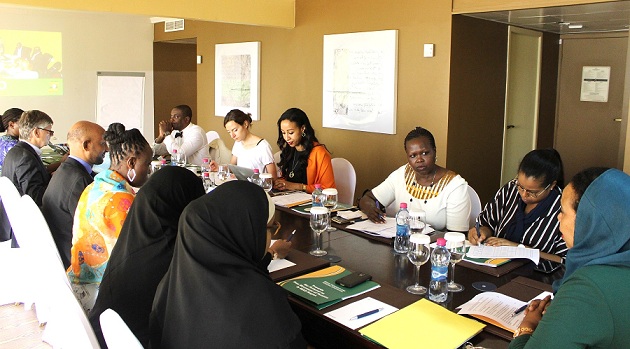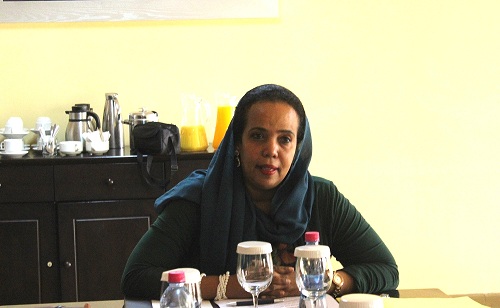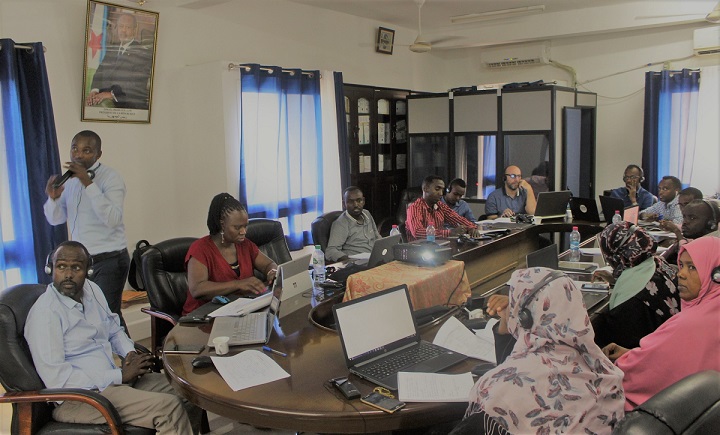
July 3, 2019 (DJIBOUTI, Djibouti): The Regional Secretariat on Forced Displacement & Mixed Migration (RSFDMM) of the Intergovernmental Authority on Development (IGAD) yesterday concluded a two-day training workshop on the use of Geo-Information Technology (GIS/RS) at the Djiboutian Agency for Social Development (ADDS).
This training was conducted within the framework of the mapping of development investments, database management and spatial planning in regards to the IGAD Development Response to Displacement Impacts Project (DRDIP) which is implemented in five member countries.
This targeted capacity building event at country-level, which was conducted by IGAD DRDIP GIS Officer, gathered staff members from the Djibouti DRDIP Implementation Unit, from the Djiboutian Agency for Social Development and from the Djibouti Department of Statistics.
IGAD Regional Secretariat on Forced Displacement and Mixed Migration (IGAD RS) did receive requests from the DRDIP Project Countries for technical support on Geo-enabling initiative for monitoring and supervision. This initiative is aimed at assisting country GIS and M&E teams utilize geo-spatial solutions to enhance monitoring and evaluation; remote supervision, real-time safeguards monitoring and portfolio mapping and coordination.
The main objective of the training was to build capacity on the utilization of Geo-information technologies (GIS/RS), geo-tagging of DRDIP development investments, database management and spatial planning.
Specifically, it focused on:
- building technical aptitude on optimal application of spatial and attribute data collected using simple Information & Communication Technology tools;
- optimising application of GIS/RS tools to process, manipulate and analyses spatial data; geo-database management;
- processing and interpretation of remotely sensed data (especially freely available satellite imagery);
- spatial planning; and
- development of maps depicting various social economic phenomena.
The HEAD of DRDIP Implementation Unit-Djibouti, Mr Ibrahim Ali, noted the importance for mapping data such as infrastructures in rural areas with refugee settlements (schools, medical clinics, wells and bore holes etc) in such a way ‘we easily visualise meta data, census, figures and much more for the purpose of informing decision-making processes’.
A Researcher at the Djibouti National Statistics Institute, Mr. Omar Moussa, attended the training as he works intensively on migration issues. ‘Recently, my Institute tasked me to focus on migration, human trafficking in the region,’ he said. Mr. Omar expressed his satisfaction to have been invited to the training that will add value to his knowledge of GIS but will also introduce him to the DRDIP concept.
The IGAD Regional Secretariat on Forced Displacement & Mixed Migration is planning to conduct similar training sessions in Nairobi, Addis Ababa and Entebbe in staggered dates between July and November 2019.
As outlined in its Strategic Plan, the IGAD Regional Secretariat on Forced Displacement and Mixed Migration creates a platform for sharing knowledge, experiences, and lessons learnt among the project countries. The IGAD RSFDMM enhances its facilitation role in the IGAD region through the creation of an appropriate and usable knowledge base on durable solutions in partnership with universities and think-tanks in the Horn of Africa. These partnerships will be linked also to the objective of the Regional Secretariat to contribute to better understanding of the nexus between socio-economic development, forced displacement and mixed migration in the IGAD Region though studies and research.
In executing its overall support roles to DRDIP Project countries, IGAD Regional Secretariat focuses on four key areas of intervention:
- Spearhead the advancement of the development approach to displacement in the Horn of Africa;
- Building partnership with universities and think-tanks in the IGAD region with respect to development planning, durable solutions and generation of actionable knowledge and information;
- Foster learning and sharing of experiences in response to the impacts of forced displacement on refugee hosting communities for all the IGAD region countries; and
- Contribute to better understanding of the nexus between socio-economic development, forced displacement and mixed migration in the IGAD region though studies and research.
..ஜஜ۩END۩ஜஜ...

